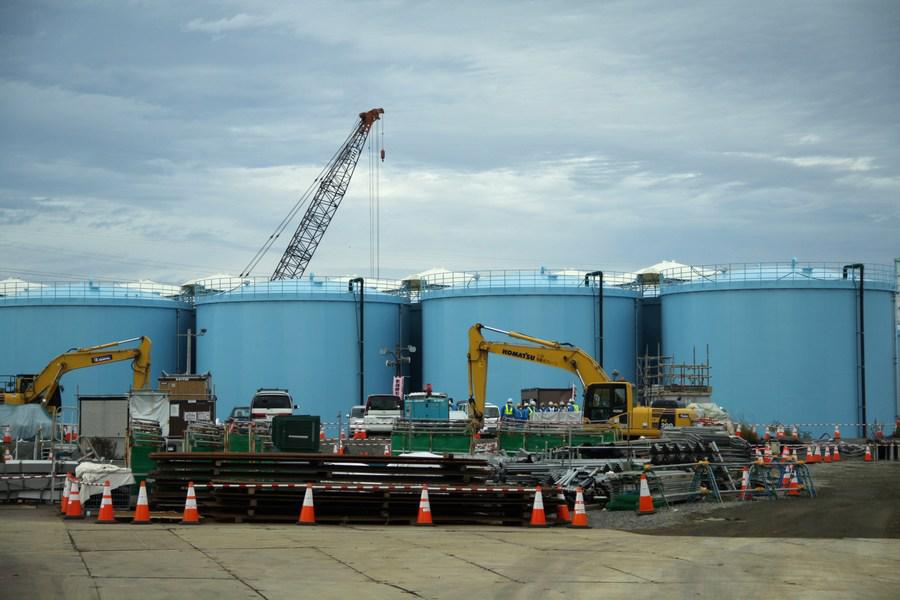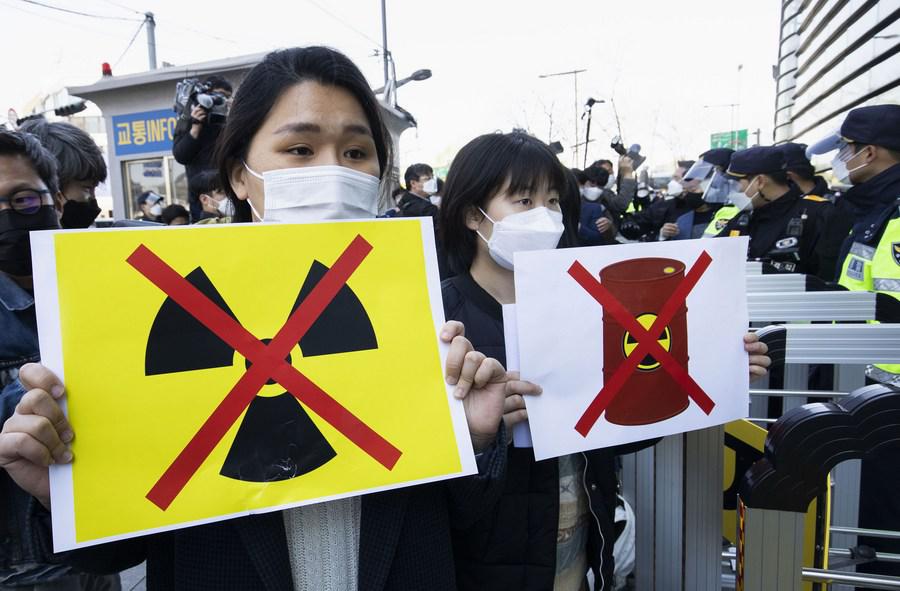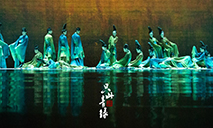IAEA plans to inspect contaminated water release plan at Japan's Fukushima nuclear plant in December

File photo taken on Oct. 12, 2017 shows huge tanks that store contaminated radioactive wastewater in Fukushima Daiichi nuclear plant, in Fukushima Prefecture, Japan. (Photo/Xinhua)
The Japanese government decided in April to start discharging radioactive water from the Fukushima Daiichi nuclear plant into the sea from around spring of 2023. The decision triggered strong criticism from neighboring countries.
TOKYO, Sept. 9 (Xinhua) -- The International Atomic Energy Agency (IAEA) will dispatch a team of experts to Japan's Fukushima Prefecture in December to review the country's plan to dump radioactive water from the Fukushima Daiichi nuclear plant into the sea, an IAEA official said Thursday.
The plan was proposed after China and South Korea, as well as local fishing communities, have voiced strong criticism against releasing the contaminated water accumulated at the plant since the 2011 massive earthquake and tsunami catastrophe in northeastern Japan.
"The agency is firmly committed to ensuring that the review is comprehensive and objective and that the results are conveyed to the international community," Lydie Evrard, head of the Department of Nuclear Safety and Security of the IAEA, said at an online news conference.
The Japanese government decided in April to start discharging the water into sea from around spring of 2023.
The decision has received strong criticism from China and other neighboring countries.
China has expressed serious concerns about Japan's decision to discharge contaminated water from the Fukushima nuclear station, with Foreign Ministry spokesperson Zhao Lijian saying that China urged the Japanese side to take a responsible attitude and treat the issue of nuclear waste disposal with caution.
Meanwhile, South Korea has also voiced its "grave concerns", with Foreign Ministry spokesman Choi Young-sam saying "it will be difficult to accept if the Japanese side decides to release the contaminated water from the Fukushima nuclear power plant without sufficient consultations."

People protest against Japan's decision to dump radioactive wastewater from the crippled Fukushima Daiichi nuclear power plant into the Pacific Ocean outside the Japanese embassy in Seoul, South Korea, April 14, 2021. (Photo by Xu Ruxi/Xinhua)
Evrard said the IAEA will select the inspection team members from 11 countries including China and South Korea.
IAEA staff may travel to Japan sometime next year to present the results before the actual discharge of the nuclear water, she said.
Water pumped into the ruined reactors at the Fukushima plant to cool the melted fuel, mixed with rain and groundwater, which has also been contaminated, is being treated using an advanced liquid processing system to remove most contaminants.
However, substances like tritium -- a radioactive byproduct of nuclear reactors -- are hard to filter out.
According to some marine experts, traces of ruthenium, cobalt, strontium, and plutonium isotopes in the wastewater also raise concerns.
Photos
Related Stories
- IAEA to invite Chinese experts over Fukushima wastewater disposal: FM spokesperson
- IAEA chief urges transparency as Japan's decision on nuclear wastewater sparks int'l backlash
- IAEA chief in Tehran ahead of Iran's deadline to withdraw from additional protocol
- Iran affirms continuity of relevant inspections "as long as JCPOA alive"
- Iran agrees to give IAEA access to 2 requested locations
Copyright © 2021 People's Daily Online. All Rights Reserved.










